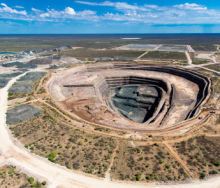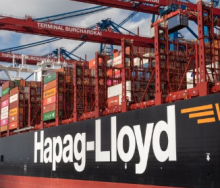The Minerals Council South Africa (MCSA) has warned that tax on primary mineral exports could lower mining production if there is no comparative advantage to beneficiating a mineral.
The council was reacting to Minister of Mineral and Petroleum Resources, Gwede Mantashe’s recent comments that the government should intervene, through a range of measures, to encourage value-addition or beneficiation of the country’s minerals to boost employment.
He made the remarks during the debate on President Cyril Ramaphosa’s opening of parliament address last week.
Mantashe said these measures could include taxing primary mineral exports, an incentive scheme for beneficiation processes, such as a finite tax holiday, or an electricity tariff linked to commodity prices.
MCSA chief executive officer, Mzila Mthenjane, said the council supports beneficiation where the economics make sense and welcomed the call “for a more conducive policy environment for beneficiation processes”.
“However, we stress the need for careful and strategically informed consideration of an export tax or other restrictions on primary (raw) mineral exports,” Mthenjane said.
Under conditions where South Africa does not have a comparative advantage to beneficiate a mineral – such as specific technical expertise in a particular field of beneficiation; abundant cheap electricity; a modern, cost-competitive manufacturing base; or globally competitive labour – the unintended consequences of export restrictions may entail lower mining production as the erosion of returns on primary extraction are worn away, the council warned.
Local and offshore interest may be curtailed in investing in exploration and existing mining operations generally, and specifically for those minerals suitable only for the export market, or where there are committed supply contracts in place.
In contrast to the stated aim of increasing employment through beneficiation, these adverse impacts will negatively affect existing jobs and new employment opportunities, the fiscus through reduced taxes, and current account balances, as well as South Africa’s relevance in global commodities markets, the council added.
“Our favoured approach to encourage beneficiation would include, firstly, a coherent, efficient and stable regulatory environment that encourages investments in exploration, through transparent and expedited processes leading to the construction of new mines and expansion of existing operations for a longer life and sustainable jobs,” Mthenjane said.
“This will unlock significant growth opportunities for South Africa, expanding its role into the production of critical minerals and supply to enable the transition to a low-carbon future,” he said.
He said this would also protect existing beneficiation activities of precious metals, ferrochrome, manganese alloys and steel manufacturing.
The MCSA added that constraints on the mining industry and the broader economy from the more than six-fold increase in electricity prices since 2008, as well as erratic power supply, had negatively affected beneficiation, particularly in energy-intensive industries like ferroalloy smelting, resulting in the demise of many industries.
“Notable progress has been made in electricity generation, while the operational performance of rail and ports have yet to gain similar traction,” the MCSA said.
The council said it favoured a “carrot” rather than a “stick” approach to achieving higher levels of mineral beneficiation.
“This would entail removing the binding constraints that have curtailed mineral beneficiation since the onset of the electricity crisis more than a decade ago, while at the same time creating a more conducive policy environment for primary mineral extraction.
“With no guarantees that it will boost beneficiation, the 'stick' approach of export taxes will hurt the primary mining sector,” the council said.
MCSA members account for 90% of the country’s annual mineral production by value.













